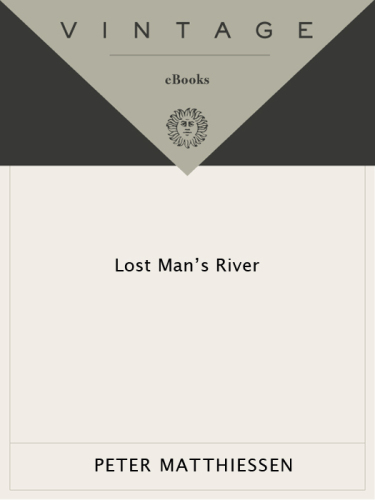
Lost Man's River
Shadow Country Trilogy (2)
کتاب های مرتبط
- اطلاعات
- نقد و بررسی
- دیدگاه کاربران
نقد و بررسی

Starred review from September 29, 1997
Like the barrier islands of southwestern Florida--ravaged by hurricanes, teeming with wildlife and buried secrets--this second volume in Matthiesson's trilogy about the life and death of notorious Florida pioneer and sugar planter E.J. Watson (after 1990's Killing Mr. Watson), will stand as a monument to the brutal and densely layered history of that region. Brilliantly fusing the writer's two vocations--naturalist and novelist--it is at once a thriller in the subtropical gothic tradition, detailing Lucius Watson's quest to understand the circumstances surrounding the death of his Papa, who was gunned down by a posse of neighbors in 1910, when Lucius was 21, and a virtuosic oral history of the event, narrated by Lucius's garrulous neighbors. The narrative opens some four decades after Watson's death, as Lucius, a former commercial fisherman, hunting guide and scholar, living alone in the thick marshlands of Caxambas Creek, is stirred from a drunken sleep by an unexpected night visitor. This is an Indian named Billie Jimmie, who bears an urn that purports to hold the remains of Lucius's lost brother, Rob. He has been dispatched by Collins, aka Chicken, who claims to be Lucius's cousin, and to have information about his Papa, who over the years has become a much-reviled, mythical desperado, known in local legend as "Bloody Watson." The Hamlet-like, perpetually self-doubting Lucius, determined to redeem the memory of his father, at once resumes his efforts to interview the last descendents of the Watson posse. An object of suspicion among his neighbors (who remember that Lucius once compiled a hit list of the men who killed his father), he has since channeled his dreams of vengeance into plans to write a whitewashing biography of the man. Spurred on by Collins, a cantakerous drunk who soon arrives on the scene bearing a closer resemblance to Lucius than one first suspects, and by Watson Dyer, a suspicious Miami lawyer, who is determined to subsidize Lucius's study and to preserve the old Watson estate, Lucius begins trolling for information about his family, which proves as tangled and treacherous as a mangrove swamp. Gradually, a coherent vision of E.J. Watson--the archetypal pioneer, who wrested a massive plantation from the savannah and ruled it with draconian violence--begins to emerge, as does a portrait of the shattered, violence-prone lives of Watson's numerous heirs. As the history of the barrier islands--a harrowing story of ecological and racial depredation--comes into focus, so does Watson's role in the rise of Big Sugar, the industry that has begun draining the Everglades, paving the coastal waterways and banishing the last Indians to reservations. The Faulknerian soliloquies giving voice to much of the novel at first may seem a contrived vehicle for transmitting the plot, but they become by the end a dazzlingly effective testament to both the insidious and the cathartic power of storytelling. Through a miasma of shadows and dopplegangers, slippery nomenclature, rumor and fact, a grand, tragic history of the Watson Clan coalesces, against an indelible vision of Florida's sublime and imperiled Gulf Coast. Maps. Author tour.

























دیدگاه کاربران